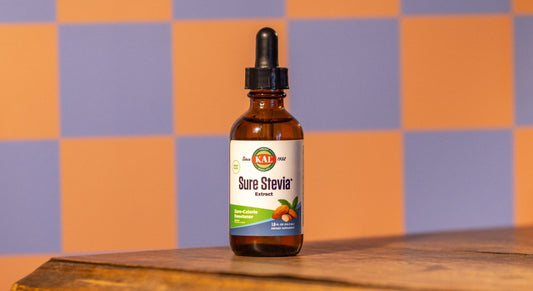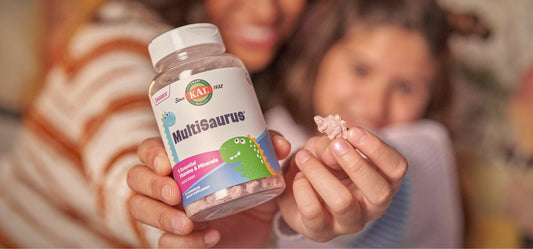Melatonin has been in the news a lot lately. But how much do you know about this natural hormone?
What is Melatonin and What Does it Do?
Melatonin is a hormone produced naturally in the body and is primarily secreted in the pineal gland, a pinecone-shaped endocrine gland located in the middle of the human brain.1 Enzymes in the pineal gland also transform serotonin, an important neurotransmitter that supports mood and brain function, into melatonin.2 Melatonin is also concentrated in other parts of the body, especially in the gastrointestinal tract.2
Melatonin is often referred to as the “hormone of darkness” because it is secreted at nighttime and that’s why it is so beneficial in supporting sound sleep.3 In particular, research shows that melatonin helps support both the quantity and quality of sleep.4
In addition to healthy sleep cycle support, melatonin is an antioxidant that has been shown to support health on many other levels as well.3 Keep in mind that melatonin naturally declines with age and that’s why many adults take it as a dietary supplement before bed.5 But is it safe?
The Safety of Melatonin Supplements
According to the authors of a StatPearls continuing education module for healthcare professionals, melatonin is “…safe with a low risk of side effects.”1 In another article in the journal Evidence-Based Practice, the authors conclude that melatonin is safe and that based on a 29-week study featuring adults who took 2 mg of melatonin daily, there was no difference in adverse effects with the melatonin group compared to those taking a placebo, aka fake pill.6 Of course, if you are considering taking Melatonin supplements, please consult your physician before starting.
How to Use Melatonin
Melatonin is available as a dietary supplement in liquid, gummy, chewable, tablet, or capsule forms in amounts of 1, 3, or 5 milligrams. Typically, adults take between 1 and 5 milligrams of melatonin 30 minutes to an hour before bedtime to support sound sleep.7 Experts agree that if you are new to melatonin, begin with the smallest amount and increase if needed.7
The research is clear that melatonin may safely support a healthy sleep cycle in adults. It can also support health in other ways in addition to sleep.
Learn more about why sleep is so important to your health by reading our blog. Plus, for more tips on nutrition, staying healthy and motherhood follow us on Facebook @kalvits and Instagram at @kalvitamins!
References
- Savage RA, Zafar N, Yohannan S, Miller JM. Melatonin. StatPearls. 2022;Aug 8. https://www.ncbi.nlm.nih.gov/books/NBK534823/?report=reader#_NBK534823_pubdet_
- Tordjman S, Chokron S, Delorme R, et al. Melatonin: Pharmacology, Functions and Therapeutic Benefits. Curr Neuropharmacol. 2017;15(3):434-443. https://www.ncbi.nlm.nih.gov/pmc/articles/PMC5405617/?report=reader
- Masters A, Pandi-Perumal SR, Seixas A, Girardin JL, McFarlane SI. Melatonin, the Hormone of Darkness: From Sleep Promotion to Ebola Treatment. Brain Disord Ther. 2014;4(1):1000151. https://www.ncbi.nlm.nih.gov/pmc/articles/PMC4334454/?report=reader
- Attenburrow ME, Cowen PJ, Sharpley AL. Low dose melatonin improves sleep in healthy middle-aged subjects. Psychopharmacology (Berl). 1996 Jul;126(2):179-81. doi: 10.1007/BF02246354. PMID: 8856838. https://pubmed.ncbi.nlm.nih.gov/8856838/
- Vural E, van Munster BC, de Rooij SE. Optimal dosages for melatonin supplementation therapy in older adults: a systematic review of current literature. Drugs Aging. 2014;31(6):441-51. https://pubmed.ncbi.nlm.nih.gov/24802882/
- Oestreich M, Polonio C, Prunuske J. Is melatonin safe to use long term? Evidence-Based Practice. 2022;25(7):15-16. https://journals.lww.com/ebp/Citation/2022/06000/Is_melatonin_safe_to_use_long_term_.13.aspx
- Summer J. Melatonin dosage: how much melatonin should you take. Sleep Foundation. 2023;May 18. https://www.sleepfoundation.org/melatonin/melatonin-dosage-how-much-should-you-take#references-80760




